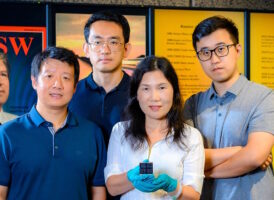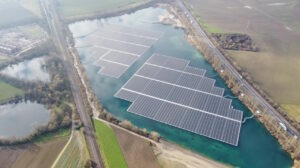The highly respected solar research and development team at the University of New South Wales has bagged another prestigious award, this time for the work of Associate Professor Brett Hallam.
Hallam was announced on Tuesday as a winner of the Prime Minister’s Prize for Science 2022, an award celebrating achievements in the commercialisation of research with economic, social and environmental benefits.
As one of two winners of a $50,000 Prize for New Innovators, Hallam was recognised for discoveries and patented technologies that have dramatically improved solar cell performance and boosted renewable energy uptake.
UNSW says Hallam is recognised as a global leader in the field of hydrogen passivation in solar cells. His discoveries are credited with improving the performance of solar cells by 10% – a significant increase in the field.
“My team developed a technology to improve the performance of industrial solar panels, make them more reliable, and cheaper,” Hallam said on Tuesday.
“In particular, we found a way to stop a form of ironic degradation when solar panels are installed in the field.
“I grew up in country Victoria and my dad’s a plumber. When I was growing up, I spent time installing solar hot water systems with him and I was always fascinated about how they could turn sunlight into electricity.”
Hallam’s goal now is to help address some of the biggest problems in the deployment of renewable energy technologies like solar at scale.
“This is important as the solar industry continues to expand by a factor of 10 over the next decade,” he said.
A long history of solar high achievement
UNSW solar researchers have received numerous global accolades over the years, including Martin Green’s 2021 award of the Japan Prize in the category of “Resources, Energy, the Environment, and Social Infrastructure.”
That award recognised Green for more than four decades of research that developed technologies now ubiquitous in most commercially available solar panels – giving him the title of “father of photovoltaics.” In 2018 he beat a field including Tesla’s Elon Musk to win the Global Energy Prize.
Hallam, meanwhile, has also been awarded the 2020 IEEE Stuart R Wenham Young Professional Award – the top global gong for young researchers.
And UNSW scientia associate professor Xiaojing Hao won the 2020 Malcolm McIntosh Prize for Physical Scientist of the Year, after leading research into a new material, sulphide kesterite, which has shown significant promise for use in the production of environmentally friendly thin-film solar panels.
More recently, in June of last year, UNSW Engineering Professor Thorsten Trupke won the IEEE William Cherry Award, in recognition of outstanding contributions to PV science and technology – as judged by his technical and scientific peers.










